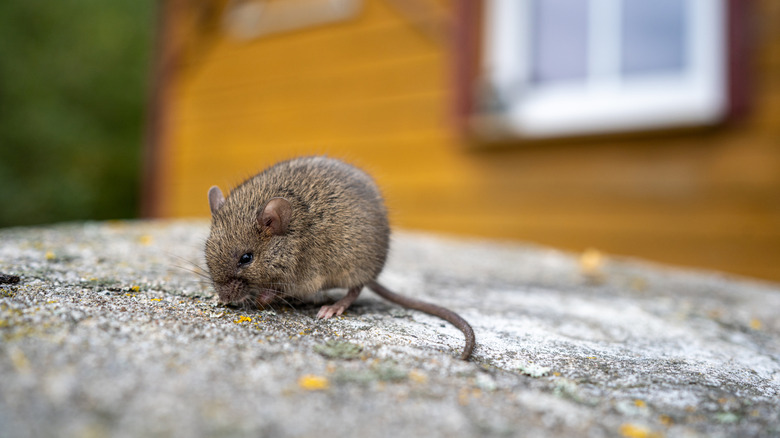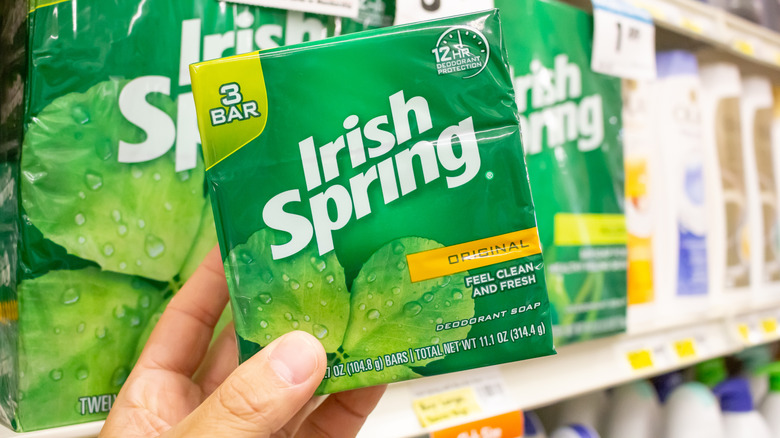The Budget-Friendly Pest Solution That Might Not Actually Work
Home pest control doesn't mean you need to use expensive (and potentially dangerous) chemicals. The best approach to pest control is a plan to help deter pests before they have a chance to enter your home, and to possibly call an expert if you have a possible infestation. Deterrents can be safer and more budget-friendly, including those targeted toward mice. One natural remedy involves using a traditional bar of Irish Spring soap to help purportedly control mice, but this method lacks scientific backing and may not be reliable on its own.
Irish Spring is a well-known brand of bar soap that has a distinctive scent of pine. While many humans have enjoyed both the scent and the low cost of this brand since the 1970s, people have also discovered alternative uses for the soap. This includes deterring certain pests from their homes and yards, which can range from small rodents like mice, to larger nuisances such as deer. Proponents of this method claim that mice do not care for the scent of the soap, which can then help deter them from areas where pieces of the bar might be in place. What's more, it's a non-toxic solution for mice, as well as your family and pets. This can be important if you're looking for ways to get rid of mice humanely. Despite some people reporting success with controlling mice with Irish Spring bar soap, others have said it does not work at all. What's more, there is no clinical proof that this method can control mice, and some of these rodents have even reportedly eaten the product.
What to do instead of using Irish Spring to control mice
A lack of evidence and mixed results at home are all reasons why you should reconsider using Irish Spring as a sole method of pest control for mice. Certain scents might keep your home fresh and deter pesky mice, but these are not completely foolproof. Before you consider other strong scents, such as peppermint oil, know that these remedies might only work temporarily. If mice have found good reasons to be in your home, such as food and shelter, they will likely stay determined despite the use of natural deterrents.
First, it's important to seal off possible entry points into your home that mice might easily access. Walk around the perimeter of your home and check for any holes, as well as small cracks and any other openings larger than a quarter of an inch that might allow mice to fit through. Seal these with caulk. Maintaining a clean and clutter-free home might also make your living spaces less attractive to these rodents, but it's also helpful to ensure any food is sealed in airtight containers, too. If you're concerned about mice, you can still use Irish Spring as an extra precaution by shaving a bar with a grater and placing the pieces near your home's entry points. Just keep in mind that this strategy will do little if you don't also follow the aforementioned mouse control tips as well. Proactively being aware of home invasion signs from mice is also important throughout the year. If you suspect signs of a mouse infestation, consider reaching out to a pest control expert for next steps.

